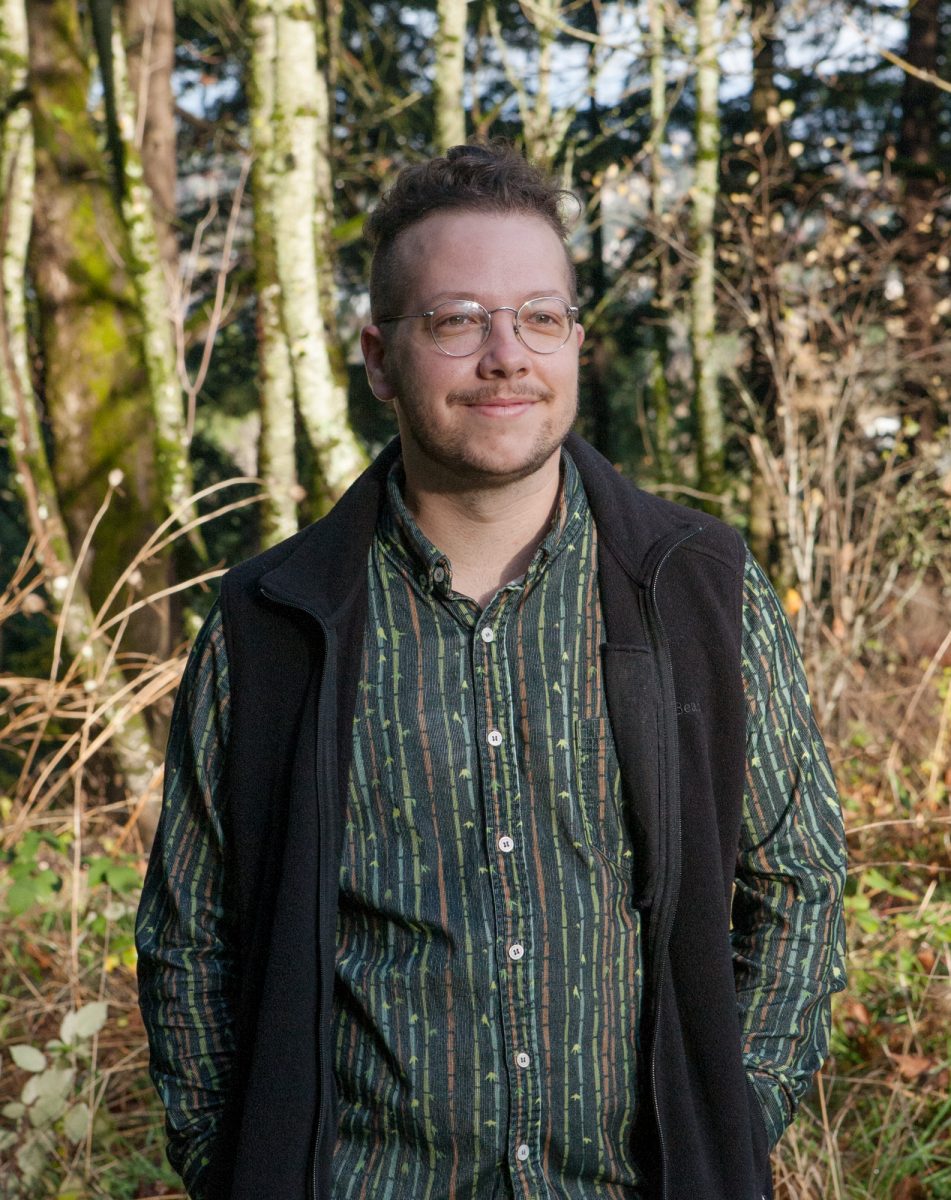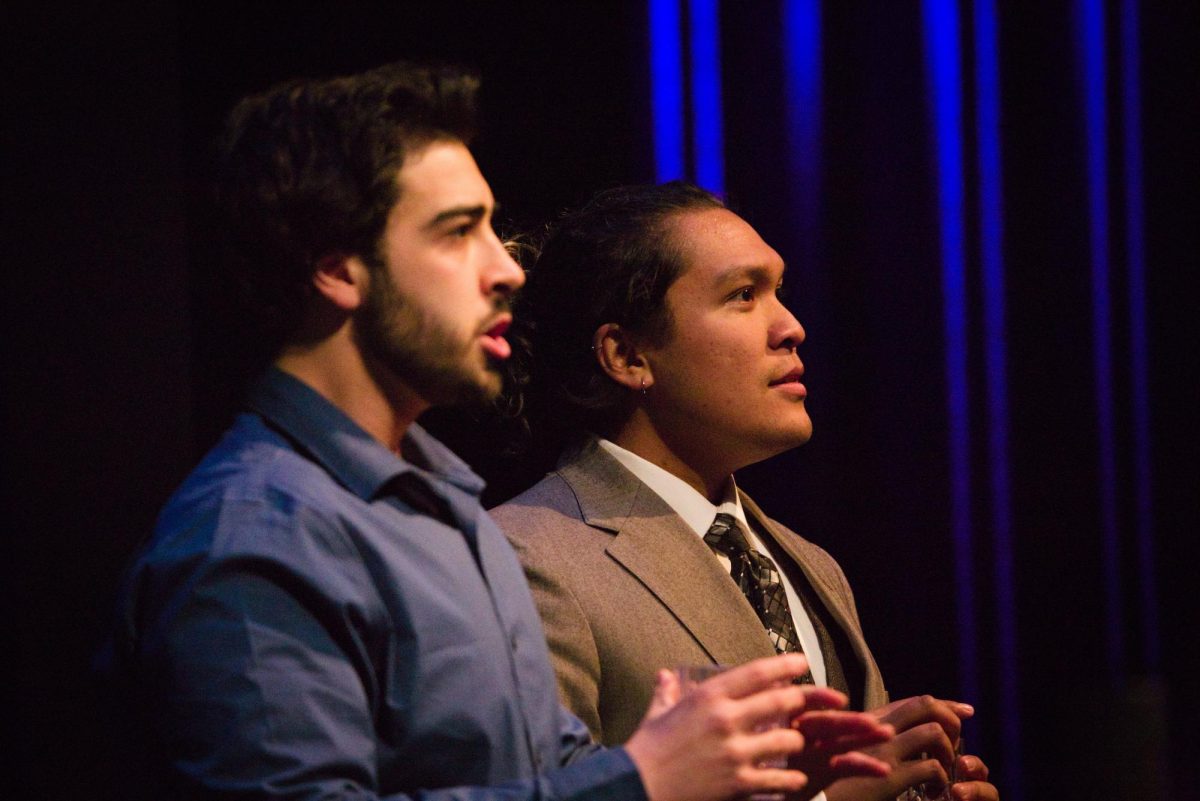By ALYSSA FOLAND, staff reporter
Chadwick Makela and his girlfriend met at FreakNight in Seattle two years ago. Since they go to different schools, they only see each other in person every few months. Technology has benefited their relationship; they text and Skype every day.
“We always talk about how it’s kind of like a blessing in disguise, because the time we do spend together, like when she comes up to visit, it’s so much more,” said Makela, senior studio arts major. “We take advantage of it. We don’t take it for granted.”
His girlfriend of almost one year, Piper Porter is a freshman music business major, is at Santa Barbara City College.
Communication technology has made it easier for college students to have relationships over great distances. Skype, Facebook, Instagram and other social media tools give students the ability to see what people are doing and to stay in constant communication.
“We Skype a lot actually—probably at least two hours a day on Skype,” Makela said. “Probably even more just because we both get home from school and then we just get on Skype and make dinner. We’ll watch Netflix series’ together over Skype, so we’ll be watching the same parts at the same time and we’ll be Skyping each other about it.”
Constant communication is key to their relationship, and technology has made that possible.
“We talk about literally everything,” Makla said. “Any fears or doubts aren’t left untouched, because it just doesn’t work with distance.”
Andrew Mason, junior pre-medical major, is also in a long distance relationship. His girlfriend, nutrition major Cassie Wood, is from Central but is studying at the Disney College Program in Florida.
Both Wood and Mason said they think they would still be in a relationship without the technological tools they have now, but it would be very different.
“I think it would have been much more difficult by far,” Wood said. “There would have been a lot of slow slow letters.”
Mason, Wood and Makela agree their relationships include a lot of trust. Both couples know there will be a lot of distance throughout their relationships, so a good sense of trust is necessary.
Mason said Wood gets back in May, but he will be leaving for Africa to work in a clinic soon after. Wood said you have to be patient and understanding about the other person’s schedule in long distance relationships and realize you won’t always be able to see them when you want to.
Nelson Pichardo, sociology and ethnic studies professor, said that although technology has opened these possibilities, it has also become a way for people to change the way they are perceived by others, because it’s a very visual medium.
“You’re compromising and cheating yourself of the benefits of a true relationship,” Pichardo said. “Technology cannot replace human interaction. It can enhance it, but it cannot replace it.”
Pichardo thinks technology contributes to a culture of lying because the interactions aren’t necessarily real. He feels it doesn’t allow for intimacy and doesn’t allow for a proper and full expression of what human relationships should be like.
“Relationships cannot be maintained, in my mind, through artificial technological means,” Pichardo said.
Pichardo offers this advice to students who are dealing with heartbreak: 90 percent of life is showing up, and if you’re not ‘showing up’ in a relationship, there is nowhere for the relationship to go. As for Wood, Makela and Mason, all of the potential barriers to their relationships are part of making it work.
“You face different obstacles in a long distance relationship that you wouldn’t normally when you live right next to each other,” Wood said. “So it grows because we learn how to deal without being able to talk to each other all the time.”




